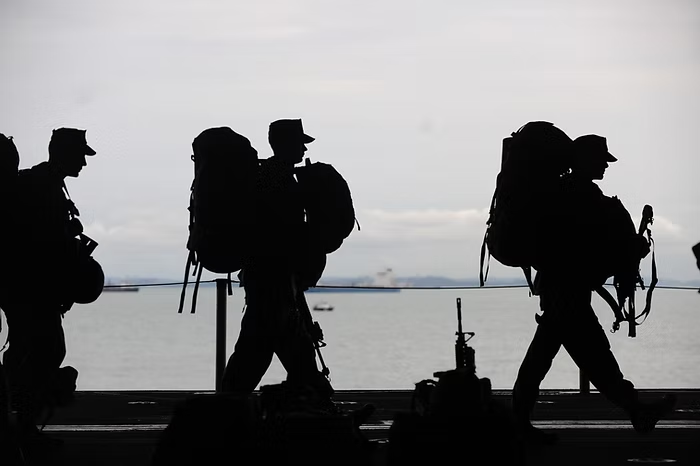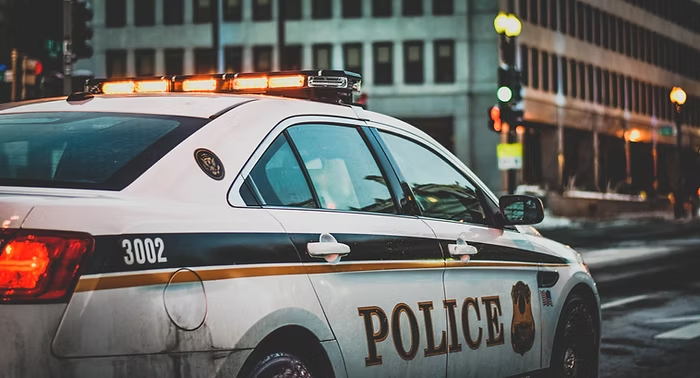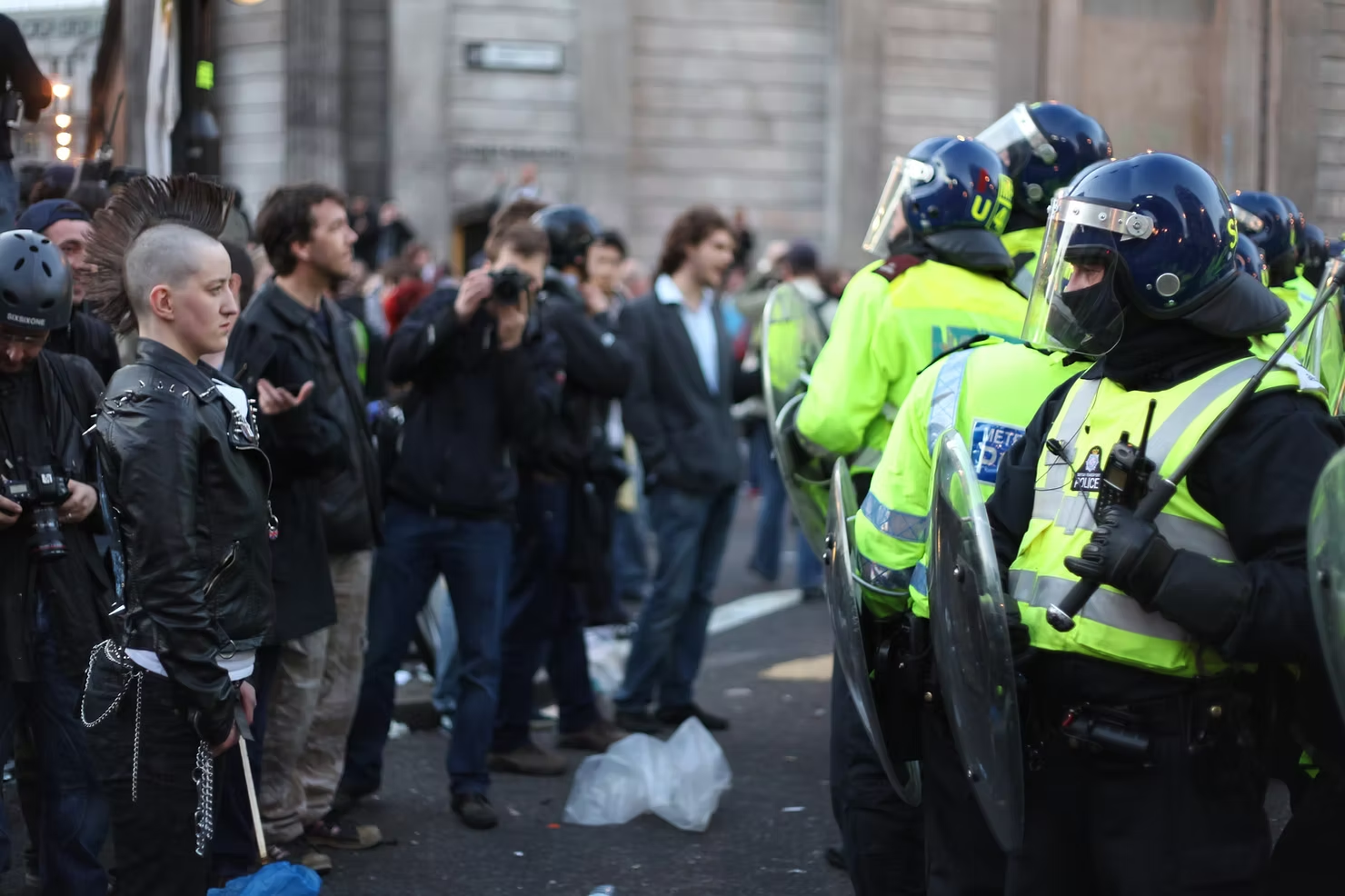… and how they aren’t yet.
Like many of you, I have been scrolling through my social media feeds and watching what’s going on in protests all across our country. I have been aghast in horror at brutal injustice, shocking abuse, and unchecked violence. I have been soothed by positive messages of caring and love. I have been proud of those who have humbly recognized their blindspots and are seeking to learn. These are hard times, and many are pointing out that the excessive militarization of our nation’s law enforcement is the problem, yet that notion was refuted on my timeline yesterday by Aaron Hammonds.
Hammonds, an Air Force veteran and academic, boldly suggested that hardware and tactics are not what define militarization. As he puts it, “Carrying an assault rifle and wearing tactical armor no more makes you a ‘soldier’ than carrying a wand and wearing a robe makes you a wizard.” Instead, it’s the things that make the military such a unique element of American history that define militarization… things that many police forces lack by design.

U.S. Military 101
Beginning with then-General George Washington resigning his commission before the Continental Congress in 1783, the U.S. military has a long and deeply-ingrained tradition of subordination to civilian authority. Each member pledges one of two possible oaths. The Oath of Office, pledged by commissioned officers, is the same one all federal public servants are bound to, and it holds them to “support and defend the Constitution of the United States against all enemies, foreign and domestic.” The Oath of Enlistment, for all enlisted personnel, are held to the same priority, but it expands by adding, “that I will obey the orders of the President of the United States and the orders of the officers appointed over me.” It’s no coincidence that commissioned officers swear the same oath as their civilian counterparts and that their enlisted are required to swear to obey the orders of the President and their officers, in that order.
The U.S. military so thoroughly indoctrinates its personnel to submit to civilian oversight that, for most, it’s a matter of habit, and to suggest that any given Soldier, Sailor, Marine, or Airman might obey a general over the Secretary of Defense (for instance) makes them profoundly uncomfortable. Likewise, service members must eschew overt political involvement, lest they risk the ire of their civilian oversight, damage the credibility of their service, or suffer severe legal consequences under the Uniform Code of Military Justice (or UCMJ). Specifically, Article 88 of the UCMJ states, “any commissioned officer who uses contemptuous words against the President, the Vice President, Congress, the Secretary of Defense, the Secretary of a military department, the Secretary of Homeland Security, or the Governor or legislature of any State, Commonwealth, or possession in which he is on duty or present shall be punished as a court-martial may direct.” At first blush, this would seem only to threaten commissioned officers, but numerous other articles make it just as dangerous for enlisted personnel to consider violating their oaths.
Additionally, commissioned officers bear a tremendous burden of responsibility, particularly while in command. If anyone in their organization breaches a matter of discipline, decency, or mission effectiveness, punishment is swift. It’s extraordinarily common for a great officer to be removed from a position solely because of a single mistake within their ranks that they could have had no reasonable direct control of.
Finally, the U.S. military (outside of the National Guard and to an extent, the Coast Guard) focuses primarily on a foreign mission. The Posse Comitatus Act of 1878 creates strict barriers against the employment of U.S. military personnel on U.S. soil. The civilian leadership, ever-aware of the political goals and sensitivities surround their deployment overseas, will place certain restrictions on the liberty of service members, provide constant oversight over tactical details of their missions and intentions, and place strict rules of engagement to ensure that personnel know precisely when they can use force and to what degree. Violations of any of these norms result in swift discipline and often a relatively hasty discharge from duty. All personnel explicitly understands that these violations damage our international relationships, credibility, and authority.

Police as a Reflection
Law enforcement officers across the nation are extremely varied in their force design and oversight, yet certain trends unfortunately persist. First, many police forces do not fall directly under civilian control, and will bristle at attempts to do so, fearing for “officer safety.” It’s not to say that you don’t occasionally hear similar grumblings from military personnel, but they will quickly fall in line without losing mission effectiveness. It’s shocking to see how few mayors even have the legal authority to directly remove a chief of police or make any significant changes to a police force or its practices.
Furthermore, police can and do routinely unionize and can be incredibly politically active. After New York City Mayor Bill de Blasio spoke out on several controversial police policies following the December 2014 killing of Eric Gardner, he spoke at a funeral for two officers and was met with the turned backs of hundreds of the other officers in attendance. This kind of protest seems unimaginable at a military funeral, yet it was considered completely acceptable and met with no punitive or administrative action by the New York City Police Department. In fact, the entire period was clouded by angry public statements to the media and public by countless police officers, including the chief of police. Such overtly political activity from service members is commonly met with decisive action.
This contrast is significant and dangerous. It can give a police union president more power over the law enforcement policies of a city than many of the elected political leaders and encourages the damaging “us versus them” narrative common among too many police officers. Adding increasingly powerful equipment to their arsenal in the name of officer safety exacerbates this issue. As Hammonds brilliantly stated, “The military asks its members to sacrifice their safety and legal rights for the protection of the civil body; police ask the civil body to sacrifice their safety and legal rights for the protection of the police.”
Police Militarization
We assume that police militarization means little more than infusing departments with assault rifles and armored vehicles. Without the oversight and restraint that comes from proper indoctrination and deference to civilian leadership, labeling it militarization is entirely inappropriate. It’s dangerous but bears little resemblance to the military.
In light of this critical observation, Hammonds’ argument is to instead increase militarization among the police. Again, Hammonds puts it best when he claimed, “A truly militarized police force would abstain from politics and discipline members who use their uniform to force political agendas. It would purge the bigots, racists, and bullies from its ranks, and hold commanders accountable when they failed to do so. It would gladly submit itself to civilian oversight, with chiefs subordinate to their mayors rather than their union presidents.”
Conclusion
In light of recent events and the American history that brought us here, a lot of work needs to be done to improve our law enforcement management and oversight. In our rush to return to normal, we must remember that for many of us, normal itself is deeply and fundamentally unjust. Instead, this moment should serve as a unique opportunity to reconsider some of our assumptions, have some hard conversations, and push for essential reforms. The militarization of our nation’s police forces has been a growing but mischaracterized concern for many. Militarization is not just a description of the hardware that’s used, but to the full submission to civilian oversight and the responsibility that carries; to that end, our police are only using military tools, but are rarely militarized. The vast majority of our law enforcement officers are loyal and well-meaning public servants, but they work within a system that almost entirely refuses to accept any real accountability for those few who chose to break our trust. Any law enforcement reforms that we consider should not strictly focus on the misuse of their military-sourced tools, but in how we can help them use those tools with the same rigorous discipline and accountability as our military.
A huge thanks to the incredible Aaron Hammonds, the warrior-scholar who inspired this article and gave me his blessing to paraphrase him liberally. For more of his thoughts on the militarization of police, check out the paper he wrote here.
